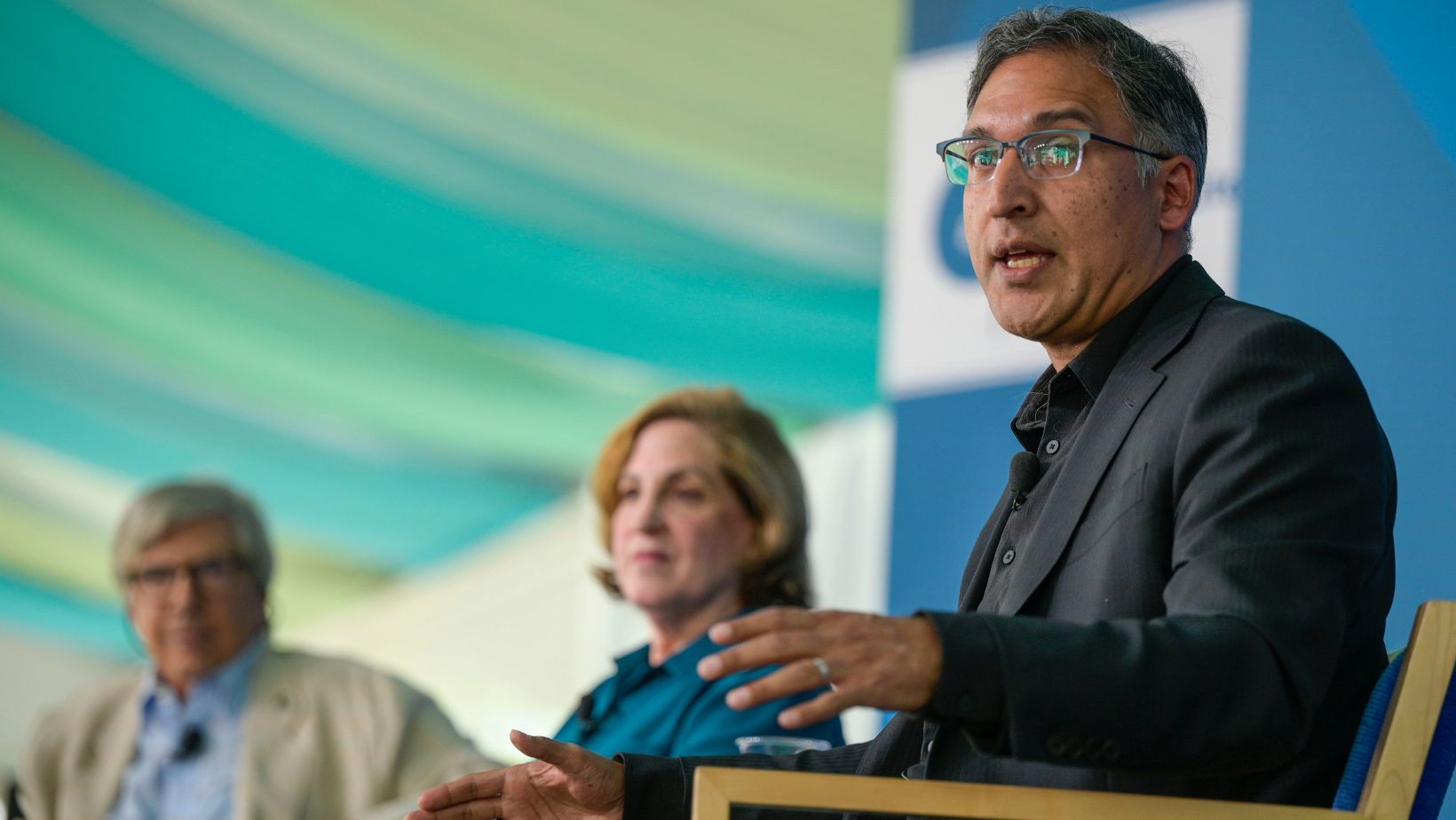Midterm elections have come and gone and now we can all enjoy a brief respite from the campaign. As most predicted, Republicans grew their majority in the House of Representatives and secured a majority in the Senate. So, what does this newly minted Republican Senate majority, likely led by Senator Mitch McConnell, portend for lawmaking in the final two years of the Obama Administration?
There are two primary schools of thought here. The first is the Corker/McCarthy view (embodied by Republican Senator Bob Corker of Tennessee and Republican Majority Leader Kevin McCarthy of California): now that Republicans control both the House and the Senate, they must demonstrate to voters that they can govern effectively by passing legislation that President Obama will sign. The Cruz school of thought — named for Texas Republican Senator Ted Cruz — rejects this theory and believes that Republicans should engage in direct political combat with the White House and be as conservative and confrontational as possible in order to “draw a clear distinction with the Democrats, [because] when we run to the mushy middle, we lose,” as Cruz has said. In this line of thinking, the House and Senate would spend the bulk of the next two years trying to repeal the Affordable Care Act despite being unable to overcome President Obama’s veto.

Before we analyze the prospects for the future we must look briefly at the past. In the last four years, Congress has been known for one government shutdown, at least fifty attempts to repeal the Affordable Care Act, acrimony, cheap shots and earning general public disgust. What were once routine legislation to support American agriculture or fund highways, bridge repair and other transportation projects have sunk like lead balloons. Structural problems with the political system combined with the built-up distrust and acrimony between the legislators themselves left almost no incentive to take legislative action.
In large part, Republicans have blamed recent gridlock on Senate Majority Leader Harry Reid (D-NV) who used a host of procedural tactics to limit legislative activity. Several Republican candidates who ran in part blaming Reid for gridlock have now lost their scapegoat. Reid often avoided tough votes for his Democratic colleagues facing re-election in Republican-leaning states. The criticism of Reid as a principal propagator of gridlock isn’t inaccurate, although to be fair, he did clear the way for a bipartisan compromise on immigration reform that was sent to the House only to be given the cold shoulder by Speaker John Boehner (R-OH) after a revolt within his own ranks. Reid might complain that his colleagues on the other side of the Capitol didn’t send him substantive legislation to work on but rather a series of dead-on-arrival bills with no hope of passing the Senate or being signed into law by the president. As usual there is plenty of legitimate blame to go around and plenty of reason to think gridlock will persist in the next Congress.
So why are Senator Corker and Majority Leader McCarthy so confident that these midterm results will unleash a flood of legislating? The reason is, of course, rooted in political strategy. “I do know this,” McCarthy said. “If we don’t capture the House stronger, and the Senate, and prove we could govern, there won’t be a Republican president in 2016.” Senator Corker agrees that Republican victory at the ballot box puts pressure on Republicans to govern and said of the president that, “a Republican majority (in the Senate) would be good for him, and his administration, during the next two years.” Despite GOP success this week, the last few years of obstruction and partisanship, particularly the government shutdown in October 2013 has damaged the Republican brand. Corker, McCarthy and others see their new majority as an opportunity to undo some damage and build towards future elections.
It’s worth mentioning a corollary of the Corker/McCarthy school of thought related to elections besides the presidential contest in 2016. Republican incumbent Senators including Kelly Ayotte in New Hampshire, Ron Johnson in Wisconsin, Mark Kirk in Illinois, Rob Portman in Ohio, and Pat Toomey in Pennsylvania all face reelection in states that have voted for Democrats in the recent past. Corker might say that the Republican Senate will have a particular onus to pass compromise legislation in order to help vulnerable Republican Senators facing electorates in moderate or Democratic leaning states.
What might be some areas where the Corker/McCarthy legislators might create compromise legislation acceptable to Republicans and to President Obama? The biggest prize would be tax reform. Retiring Ways and Means Chairman David Camp (R-MI) authored a major tax overhaul bill that could form the basis of a compromise agreement. However, this issue is particularly difficult for Republicans committed to Grover Norquist’s no tax pledge, leaving them little ability to support any changes to the tax code that Mr. Norquist determines lead to new revenue. Another big issue is immigration reform, but structural impediments in the House (where most Republican legislators count almost no Hispanic voters among their constituents) also make that unlikely. Smaller goals like infrastructure spending, unemployment insurance, early childhood education, the Keystone XL pipeline and reforming criminal sentencing laws are much more likely. There are also pending trade agreements that could see movement.
An early indication of the likelihood of a more productive Congress could come in the lame-duck session between now and the swearing in of the new Congress. If the House and Senate can pass a longer term appropriations package that “clears the deck” for the incoming Congress it will relieve them of re-litigating old fights over fiscal cliffs and sequestration. The Obama White House will be hopeful that this comes to pass and the next two years allow the president to burnish his legacy, albeit on issues determined largely by pragmatism and not idealistic Democratic goals. Bill Clinton proved that deal-making in divided government during the last two years of a presidency is possible, all it takes is willing partners in House and Senate leadership. If the deck doesn’t get cleared this may signal the intention of Republicans to use the spending process to try and force the president to roll back some of his legislative achievements or accept one sided and partisan policies.
There are a lot of reasons to believe that the Cruz school of thought will be the likely outcome. Senator Cruz, his Senate allies and his conservative colleagues in the House of Representatives have significant incentives to continue partisan warfare through obstruction, conflict and partisanship. If they have their way, the 114th Congress will be marred by petty battles, ugly confirmation hearings and aggressive use of the spending process to attack and re-fight old battles, mostly over the Affordable Care Act. All of this could lead to further instability, gridlock and even another government shutdown.
My former colleagues on Capitol Hill and many pundits may call me naïve, but I am cautiously optimistic that the Corker/McCarthy school of thought could prevail to some degree. Tax and immigration reform are probably beyond the scope of possibility but a constructive process that leads to a significant investment in infrastructure, for example, would be a major boon to job creation and the economy. Republicans have to deliver something tangible to voters in order to be viewed credibly as a party capable of governing.
Despite the Congressional dysfunction of the last few years and the ease with which a determined group of lawmakers can disrupt the legislative process, there are strong incentives for many Republicans to deliver more than partisanship and gridlock. The national Republican brand has been badly damaged by Cruz and his allies over the last few years. Such behavior may play well in conservative House districts and a few states, but to win national elections, parties need to demonstrate real leadership and a positive, constructive vision of the future. Many Republicans learned this the hard way during the Cruz led October 2013 government shutdown. If the goal is to win the White House in 2016, Republicans must take active steps to show the voters that they deserve consideration. This probably won’t be an era of unheralded bipartisanship, but there are finally strong incentives for Republicans to take action, and penalties if they fail to govern. Let us hope these are enough to get Congress moving again.

